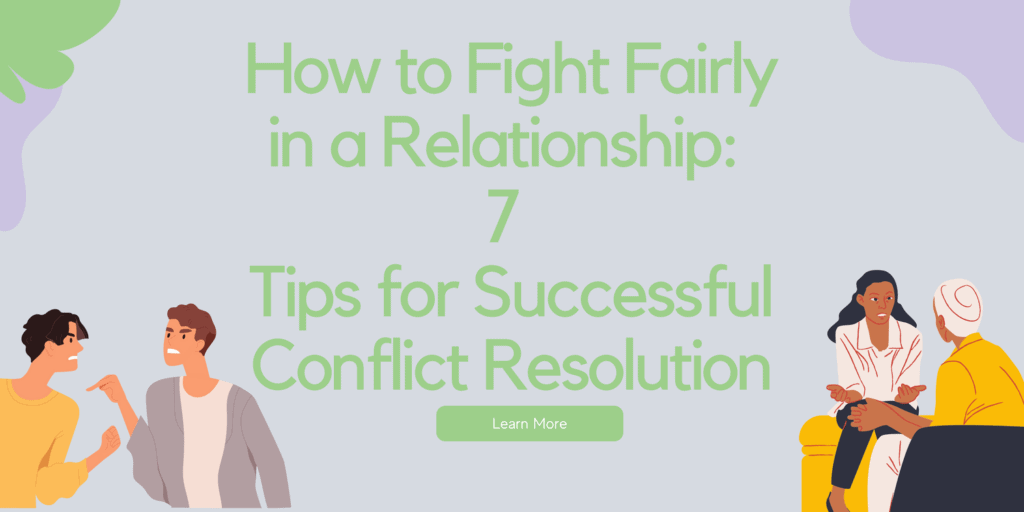We all know that feeling. You’re having a discussion with your partner and it starts to escalate. Your voices raise, the insults start flying, and soon you’re both saying things you’ll regret. It’s easy to get caught up in the heat of the moment, but fighting fair is essential for a healthy relationship. When you fight fair, you and your partner can both express yourselves without fear of verbally or emotionally hurting each other. Here are some tips on how to do that.
1. Avoid escalation at all costs.
When tempers start to flare, it can be tempting to let the argument spiral out of control. But if you want to fight fairly, you need to avoid escalation at all costs. That means no name-calling, no raised voices, no degrading language, no stonewalling, and no ultimatums. If things start to get heated, take a step back and take a deep breath. It might seem trite, but it really does help calm down an argument quickly.
2. Figure out what you’re really fighting about
Oftentimes, when we argue with our partner, we’re really mad about something else entirely. For example, if you had a tough day at work and your partner doesn’t seem to be sympathizing, you might snap at them and say something hurtful like “you never understand me.” In reality, you’re upset about your day at work, not about your partner not understanding you. Once you figure out what the real issue is, you can address it directly instead of taking your frustration out on your partner unfairly.
3. Communicate openly and honestly
In order to fight fairly, you need to communicate openly and honestly with your partner. That means listening to what they have to say without interrupting and making sure that your words are respectful. Avoid “you” statements—for example, “You always make me feel like I’m not good enough”—and opt for “I” statements instead—”I feel hurt when I feel like you’re not interested in what I have to say.” This will help reduce defensiveness and encourage meaningful dialogue.
4. Don’t bring up past issues
We’ve all been there—you’re in the middle of an argument about something minor and suddenly your partner brings up that one time you forgot their birthday back in 2003. Bringing up past issues is a surefire way to turn a small argument into a full-blown fight. If you want to resolve the current issue, focus on that and save the rest for another time.
5. Listen to what your partner has to say
When we’re in the middle of an argument, it can be easy to tune out what our partner is saying and just wait for our turn to talk. But truly listening to what they have to say is essential for resolution. Not only will it help you understand their perspective, but it will also show them that you value their opinion. So next time you find yourself in a disagreement, really listen to what your partner has to say. You might be surprised at how much progress you can make.
6. Be willing to compromise.
There is no perfect answer to every argument, so compromise and understanding your partner’s perspective are important. In any relationship, there will be times when each person has to give a little bit in order to make things work for both of you. If you’re not willing to do that, then the relationship is likely doomed to fail. So, try to be open-minded and consider your partner’s point of view—you may be surprised at how easy it is to reach a compromise that works for both of you!
7. Take a break if necessary.
Sometimes, an argument can get so heated that it’s impossible to continue fighting fairly. If that happens, it’s okay to take a break—even if it just means stepping away from each other for a few minutes to calm down. The important thing is that you come back together when both of you are feeling more level-headed and ready to talk things out calmly and rationally. Only then will you be able to resolve the conflict successfully.
Fighting fair may not come naturally, but it’s essential for any healthy relationship. By avoiding personal attacks, staying focused on the current issue, and truly listening to what your partner has to say, you can turn a negative into a positive and come out of an argument stronger than ever before.





